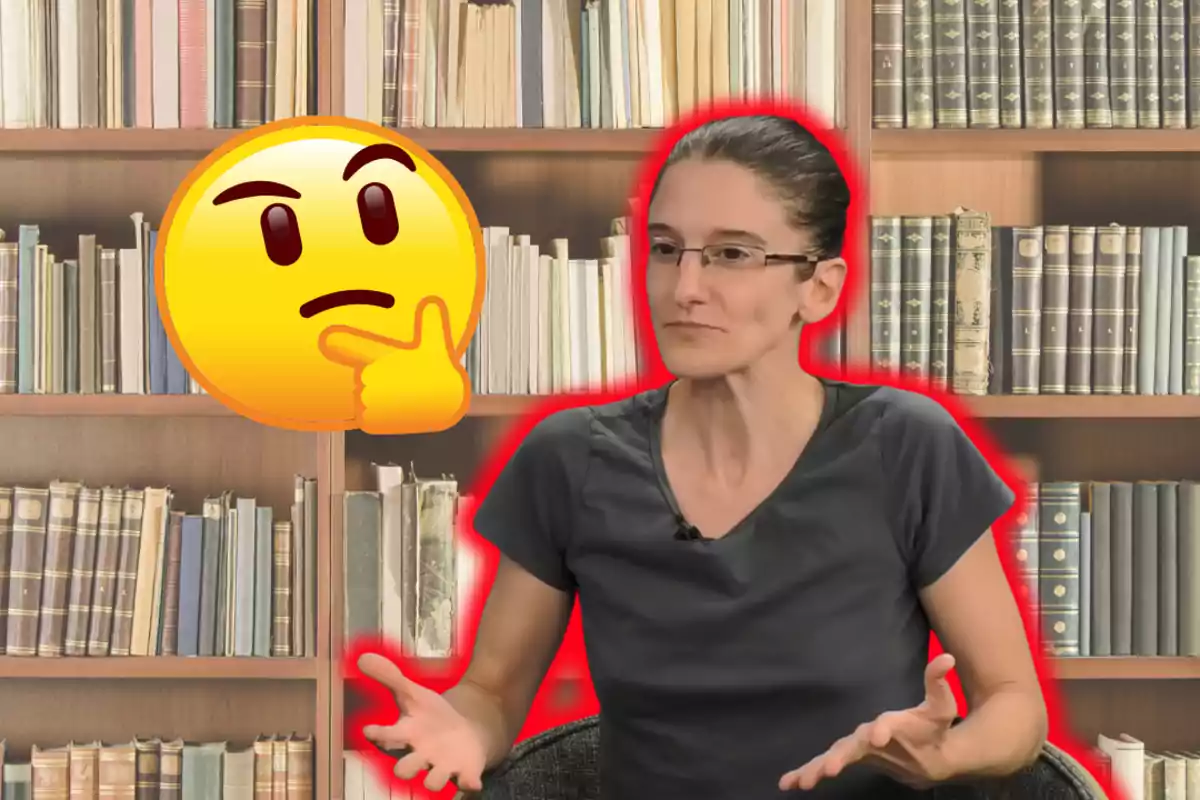In an increasingly connected but also more standardized world, there are those who refuse to give up the nuances that make each language unique. The chef and cultural communicator Maria Nicolau, known for her fresh, direct, and highly personal style, has launched a petition on social media.
While enjoying a book, Nicolau shared, in a tone that was half serious and half playful, a reflection: "Do you know what would be good? A small note on the first page of books about the dialectal variant I should activate in the voice inside my head."
The reader's "inner voice"
The proposal strikes a special chord in every reader: that inner voice with which we read mentally. Although most people don't perceive it consciously, everyone—in one way or another—activates a tone, a rhythm, and even an internal accent when they read, especially if the text is in their native language.

In Catalan, where there are different dialectal variants (central, western, Valencian, Balearic…), this voice can significantly change the perception of a work.
Maria Nicolau gives a clear example: the book she's reading seems perfect if she imagines it with a Mollerussa accent, a town in Lleida that represents the western variant of Catalan. This sparks an idea as simple as it is powerful: what if books included a note about the most suitable accent for reading them mentally?

Is this idea viable?
Nicolau's suggestion has sparked smiles, but also more serious reflections. Many Catalan writers and editors acknowledge that the dialectal register is part of a text's soul. It's not the same to read a dialogue written in Balearic as in Valencian, and it's not the same if the narrator "thinks" in Barceloní or in Tarraconense.
Some believe this is already solved implicitly: if the author is from Girona, for example, and writes in their variety, the reader senses it. But Nicolau goes a step further and raises the possibility that publishers could help guide that "inner voice" of the reader, especially when the text isn't so marked or seeks a neutrality that, paradoxically, can be confusing.
Catalan, a language rich in nuances
This debate once again brings to the table the enormous dialectal richness of Catalan, a language with multiple correct ways to say the same thing, depending on the place. While in Barcelona they say "nena," in Palma they say "al·lota," and in Castelló it might be "xiqueta". This diversity, far from being an obstacle, is one of the country's cultural strengths.
However, it's not always recognized or respected equally. Many readers complain that certain dialects receive more editorial visibility than others, and that there is a tendency to "centralize" Catalan in its Barcelonan variant. In that sense, Nicolau's gesture can also be interpreted as a defense of linguistic plurality within the same language.
A thought-provoking proposal
Although it may seem like a minor detail, the idea of indicating the dialectal tone at the beginning of a book isn't so far-fetched. It could work as a stylistic detail, almost like a note from the author, indicating: "Aquest llibre s’hauria de llegir amb accent de Mollerussa." A nod to the reader that not only enriches the reading experience, but also makes visible and validates all the ways of speaking Catalan.
In the end, what Maria Nicolau proposes isn't just a charming idea. It's a reminder that language, just like the cuisine she so passionately defends, lives in nuances, in accents, in details. Even in the silence of reading, the way we hear words inside also matters.

